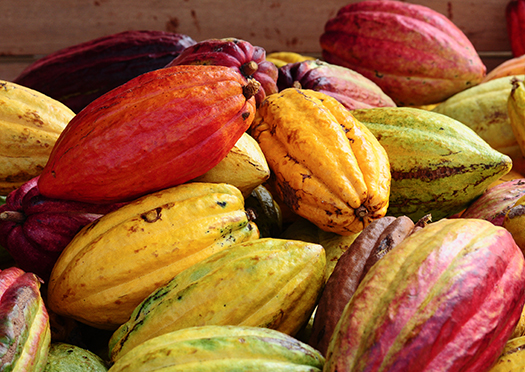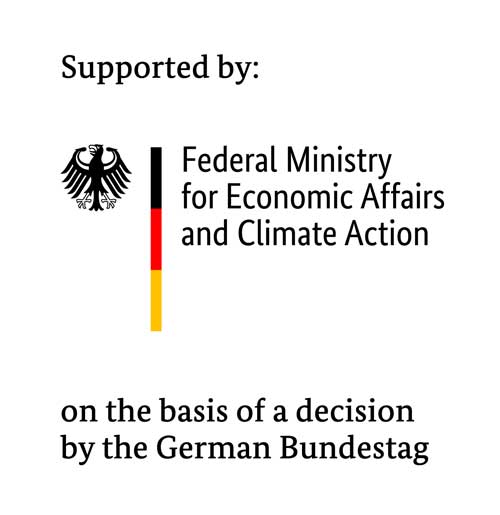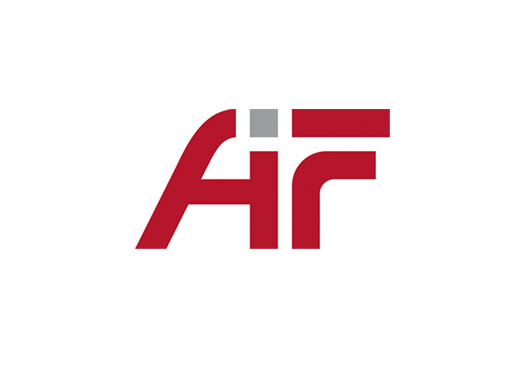Using damaged cocoa pods to manufacture cosmetic products

Damaged cocoa pods: a valuable raw material
The cacao tree, or Theobroma cacao, is native to Central and South America. Its main product are the seeds it produces, which are used primarily for manufacturing chocolate. However, the tree is subject to a slew of pests and diseases that have resulted in crop losses of 30 - 40% worldwide — and despite significant efforts, there are still no signs of these afflictions being successfully eradicated. Damaged cocoa pods are either discarded, resulting in waste management problems and contamination in production environments, or mixed with healthy pods before going on to be processed further. This reduces quality and impairs the taste of the chocolate products created from the mixture. When it comes to other products such as natural cosmetics and their ingredients, however, damaged pods still represent a valuable and renewable raw material.
Cocoa pods affected by fungus provide high-quality raw materials for cosmetics
The aim of the Damaged Beans project is to establish new ways of using cocoa beans that show damage from fungal diseases. The German/Brazilian consortium that runs it is developing specific methods of identifying and classifying different types of fungal contamination, and pinpointing new applications for cocoa beans affected by this. Its approach has the potential to enhance the entire cocoa value chain by improving working conditions and income for cocoa farmers, boosting the quality of cocoa products — which in turn would allow the cosmetics industry to benefit from a bigger range of sustainable ingredients — and creating more value for all related industries as a whole. The chemical changes that are caused by fungal diseases cause cocoa butter to demonstrate different melting properties that make it softer at room or body temperature — something that is a drawback for chocolate manufacturing but can bring advantages to cosmetic applications. Changes in the composition of the amino acids and proteins heighten gelling and thickening properties, potentially creating an ideal substitute for acrylates. Finally, higher quantities of secondary plant substances (SPSs) are produced, providing not only antioxidant and antimicrobial properties but also the ability to improve the stability and shelf life of cosmetic products.
Obtaining valuable ingredients from damaged cocoa beans
The first stage of the project will involve developing fast, cost-effective investigation methods based on NIR spectral information in combination with chemometric tools. This will identify the extent of damage affecting cocoa pods and beans with fungal diseases, and determine the physical and chemical quality of the beans. A multi-stage cascade extraction process will then be established with the specific aim of fractionating the damaged beans and obtaining highly functional cocoa butter, proteins and SPSs for the cosmetics and chemical industries. As part of this, proteins and SPSs will be extracted using a range of liquid solvents. This will make it possible to obtain not only cocoa butter, but also highly functional proteins and SPSs for cosmetics, advancing efforts to substitute fossil-based resources for natural ingredients. The potential applications for cocoa butter, proteins and SPSs from damaged cocoa beans will be identified using a functionality spectrum and specifically designated on the basis of Fraunhofer IVV’s statistical methods and empirical findings.
Project term: |
2023 to 2025 |
Project management / funding: |
Industry Association for Food Technology and Packaging e.V. (IVLV) - AiF / Federal Ministry for Economic Affairs and Climate Action (BMWK) - funded within the framework of CORNET (Collective Research Networking) / IGF international for the benefit of small and medium-sized enterprises |
Project partners: |
|
| Funding code: | 347 EN |
 Fraunhofer Institute for Process Engineering and Packaging IVV
Fraunhofer Institute for Process Engineering and Packaging IVV

